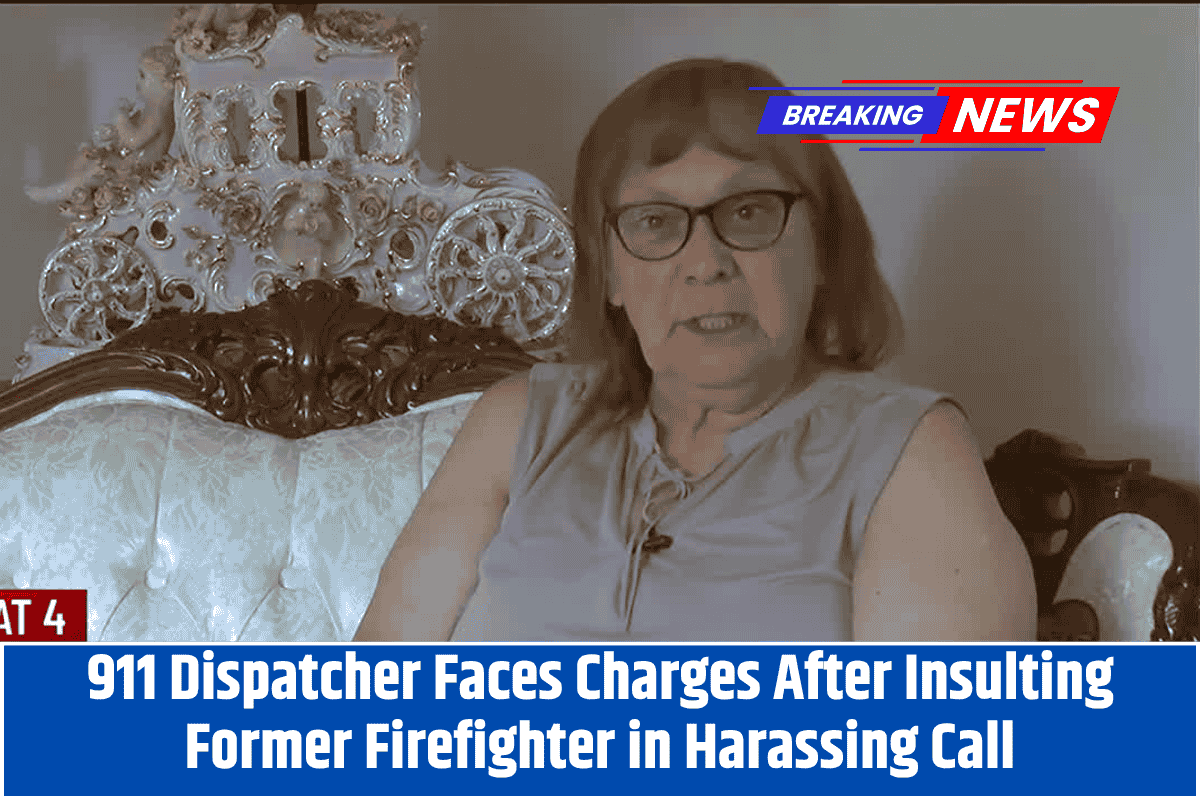A 911 dispatcher in Ohio has found herself in legal trouble after making a disturbing phone call to a former firefighter, during which she insulted and humiliated the woman for making repeated 911 calls over the years.
Loretta Nash, 58, was charged with telecommunications harassment and prohibited use of 911 system data after the incident, which has left the victim terrified and seeking justice.
The Disturbing Phone Call
The incident occurred on June 6, 2024, when Karen Clinton, a former firefighter and police dispatcher, received a call from the Twinsburg Police Department. Clinton, who had made numerous emergency calls over the past 15 years, became immediately anxious when she saw the number on her caller ID.
“My heart started racing,” Clinton told local news outlets. “I was bracing for impact. I was getting ready; do I need to sit down?” Clinton described feeling terrified by the call, which she feared might be an emergency or a threatening situation.
What Clinton didn’t expect, however, was the harassing nature of the call. When she picked up the phone, Nash, who had been a dispatcher for the police department, introduced herself as part of the police department.
Nash proceeded to outline the number of calls Clinton had made to 911, claiming that Clinton had made 183 phone calls since 2010 and that the department had conducted numerous traffic stops and patrols in her neighborhood in response to her complaints.
The call quickly escalated into insults. Nash reportedly told Clinton, “You are the dumbest person to call this police department on a repeated basis,” before adding, “It’s called the booby prize. Congratulations, you win.” Nash then ended the call without Clinton saying a word.
Clinton’s Reaction and Legal Action
Clinton was left stunned and emotionally shaken by the call. She said the dispatcher’s words “terrorized” her in her own home, leaving her feeling humiliated. “It took me to my knees, it really did,” Clinton said, recounting how the call affected her deeply.
As a former firefighter and dispatcher herself, Clinton felt personally attacked and targeted. She emphasized that the dispatcher’s claims that she had been making frivolous calls to 911 were false, stating, “The call was to humiliate me by implying that I would make frivolous calls to 911, and that is absolutely not true.”
Later that night, Clinton received a call from the chief of police, who apologized for the dispatcher’s actions. Despite the apology, Clinton decided to file a formal complaint and press charges against Nash, feeling that justice needed to be served for the distress the dispatcher had caused her.
The Charges Against Loretta Nash
Nash was charged on July 9, 2024, with telecommunications harassment and prohibited use of 911 system data, both misdemeanors. These charges stem from her actions, which were meant to harass and intimidate Clinton using the telecommunications system. Nash was fired from her position as a 911 dispatcher after the incident came to light.
Nash pleaded not guilty to the charges at her arraignment on July 10, 2024, and is scheduled for a hearing on July 29. Her trial is set for September 22, 2024.
Impact on Clinton and the Community
Clinton’s case has raised important questions about the responsibility of 911 dispatchers and how they interact with the public. In her interviews, Clinton described the incident as one of the “most cruel, heinous things” she had ever experienced.
The emotional toll of the phone call has left her questioning why Nash singled her out and harassed her in such a manner.
“This is cruel,” Clinton said. “It’s cruel to do that.”
The case has drawn attention to the potential abuse of power by emergency dispatchers, who hold a critical role in the community. As Clinton moves forward with her case, many are watching to see how the legal system will address this troubling incident involving a public servant.






